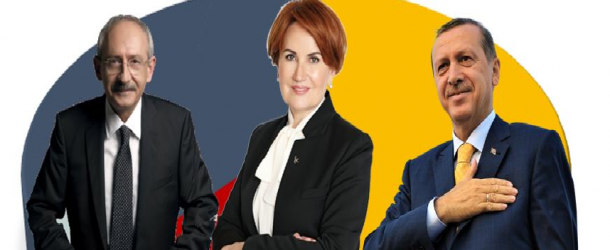Turkey will have its first joint parliamentary and Presidential election on November 3, 2019 following the local election on March 24, 2019. Although it is still too early to comment on these elections, I am going to summarize recent political developments in Turkey and discuss future scenarios and prospects of possible candidates for the 2019 Presidential election for our international readers.
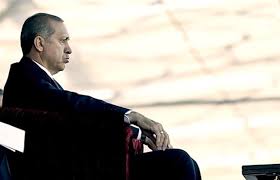
Recep Tayyip Erdoğan
Turkey is still under the state of emergency and ruled by the President of the Republic Mr. Recep Tayyip Erdoğan and his party (JDP-Justice and Development Party) following the failed coup attempt of July 15, 2016. Erdoğan, thanks to the failed coup attempt, not only was able to purge Fethullah Gülen loyalists from public offices, but also intimidate the opposition in the post-coup period. In addition, with the last year’s referendum, Mr. Erdoğan was also able to change the political system of Turkey and transformed Turkey’s parliamentary system (with some excessive powers allocated for the President of the Republic compared to classical Westminster model) into a strong Presidentialism similar to Russia and Central Asian Turkic states. Although Erdoğan had a last-ditch victory (only 51.4 %) in the referendum, the new system obviously favors populist right-wing parties and makes Mr. Erdoğan the grand favorite for the next Presidentail election. Despite the fact that Turkey’s authoritarian transformation do not please Turkey’s intellectuals and Western observers, Mr. Erdoğan made a quite good job in terms of macroeconomic indicators during this troublesome period. However, Turkey’s amazing growth rate (11 % in the last quarter as the fastest growing economy in the world) is thought to be a direct consequence of the developed construction sector and do not positively affect ordinary people’s life standards. Moreover, the lack of intellectual and artistic freedoms and the atmosphere of fear spread by the government make many people unhappy and desperate for the future. Thousands of people having intellectual and capital accumulation decided to leave Turkey in the last few years with growing fears of seeing their country transformed into an Islamist dictatorship in the near future. Turkey’s education system was Islamized and a new pious Muslim generation was raised with less Western and secular values. Moreover, due to the lack of a vibrant civil society and critical media institutions, in addition to a passivated army (TAF-Turkish Armed Forces) that was once the guardian of secularism and indivisible integrity, Turkey’s future does not give too much hopes to liberal intelligentsia.
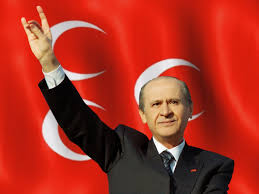
Devlet Bahçeli
In this context, President Erdoğan seems to be strongest political actor in Turkey, similar to Vladimir Putin of Russia, who dominates the political scene and legitimizes himself as the only one that could provide unity and bring stability to the country. Since 2002, Mr. Erdoğan was very lucky and competent in winning elections and he was never beaten until today. However, Erdoğan won these elections by using populist and Islamist political arguments such as restrictive secular practices against veiled women (headscarf ban implemented in universities and public offices until recent years) or pious Muslim people (including TAF and main opposition party pro-secular RPP’s -Republican People’s Party- efforts to prevent Mr. Abdullah Gül’s election as the President of the Republic in 2007), Israeli policies in Palestine, coup plots organized by secular groups (2003, 2004 and 2007) or by other Islamic groups such as FETO (15 July 2016), American plans of hegemony in the Middle East and European Union and European countries’ double standard-based approaches to Turkey. Nowadays, in terms of domestic policy, Mr. Erdoğan finds himself in a difficult position to produce pretexts or find populist arguments since he is the only authority left in the country. However, Mr. Erdoğan can still find and exploit political arguments in relation foreign policy such as American President Donald Trump’s recent approval of Jerusalem as the capital of Israel or American support provided to PYD-YPG forces in Syria in order to motivate right-wing and sentimental Turkish voters. Mr. Erdoğan was once labelled as the most liberal politician of Turkey due to his efforts to solve Kurdish Question by starting a dialogue process with PKK and its imprisoned leader Abdullah Öcalan. But now, Erdoğan is playing the nationalism card and completely ignores Kurdish voters. Thanks to the support provided by Nationalist Action Party (NAP) leader Mr. Devlet Bahçeli, Mr. Erdoğan is confident of his victory. Mr. Bahçeli recently declared that his party will support Mr. Erdoğan in the 2019 election.[1] In return, Mr. Bahçeli expects some of the JDP voters to vote for his party on the same day in parliamentary elections since his party is now under the 10 % threshold according to surveys.[2] However, if NAP stays below the electoral threshold, this electoral coalition between Islamists and Turkish nationalists might end up soon. In fact, Mr. Erdoğan needs NAP and Bahçeli only for 2019 elections; after the election he will have plenty of time to design a new strategy for the next Presidential election. So, NAP could become the biggest loser of this electoral process if Erdoğan is elected, but NAP stays out of the parliament. Another formula for this coalition is to prepare a joint candidate list for 2019 parliamentary election and reserve 40-50 guaranteed seats for NAP in return to Erdoğan’s Presidential candidacy, which seems a more attractive formula for NAP leadership. Mr. Erdoğan still has 46 % personal support according to polls and he could easily win the Presidential election with a successful political campaign and NAP support. But if Erdoğan is not elected in the first round, anything could happen in the second round.
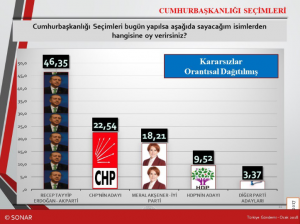
SONAR’s most recent poll for 2019 Presidential election
The opposition on the other hand constantly loses blood due to lack of unity and skilled leadership. Mr. Kemal Kılıçdaroğlu, the leader of RPP, is a peaceful left-wing politician, similar to European social democratic leaders, who does not have high chance in beating Mr. Erdoğan in a conservative country like Turkey. Kılıçdaroğlu is from Alevi (Alawite) minority, has Kurdish, Zaza and Armenian background and lacks the quality of charismatic leader in Turkish context. Knowing Turkey’s sociological realities and acting responsibly, Mr. Kılıçdaroğlu does not declare himself automatically as a candidate for the forthcoming Presidential election. He can still become a candidate if polls prove that he has higher chances compared to alternatives. Other Presidential candidates from RPP are İlhan Kesici, Muharrem İnce and Ümit Kocasakal.
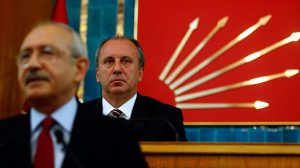
Kılıçdaroğlu and Muharrem İnce
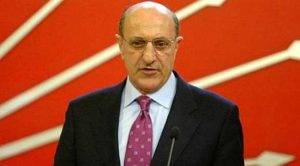
İlhan Kesici
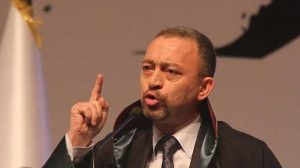
Ümit Kocasakal
Muharrem İnce is a charismatic figure who made very impressive and somehow provocative parliamentary speeches against Erdoğan and his party in the recent past[3], but his harsh secularism inclination might prevent him to appeal to right-wing voters. Moreover, Kurdish voters also might not prefer him due to his nationalism. However, Mr. İnce can still take the support of various secular groups with his appropriation of Kemalist Republican heritage and civic nationalism ideal. The other favorite candidate is İlhan Kesici, an experienced center-right politician who became a member and deputy of RPP few years ago. Kesici has personal ties with mighty Demirel family; but after the death of Süleyman Demirel, Demirel family’s influence in Turkish politics is now faded away. Kesici might still appeal to everyone within the anti-Erdoğan bloc, because he is a respected person who always stayed away from petty politics and polemics. However, Kesici is not very famous among the young voters since he was away from active politics until recently. Kurdish support to Mr. Kesici is not guaranteed as well. Hardliner Kemalist lawyer Mr. Ümit Kocasakal is also a potential Presidential candidate from RPP; but since he is not very well-known outside of RPP circles, he does not have too much chance. RPP’s Presidential candidate’s vote potential is around 22-25 % in the first round for the moment according to some polls, but in the second round, the best candidate among these four (Kılıçdaroğlu, İnce, Kesici, Kocasakal) might take the support of whole anti-Erdoğan bloc and could approach to 50 % of the votes. It should not be forgotten that Mr. Ekmeleddin İhsanoğlu, as the joint candidate of RPP and NAP, took 38.44 % of the votes in the first round[4] in 2014 Presidential election. If Erdoğan was not elected in the first round in 2014 (if there was a fourth candidate in the first round other than Erdoğan, İhsanoğlu and Selahattin Demirtaş), in the second round, Mr. İhsanoğlu might have even beaten Mr. Erdoğan according to some predictions. According to SONAR polls company owner Mr. Hakan Bayrakçı, among these four names, Mr. İlhan Kesici is the best alternative and he can win the Presidential election against Mr. Erdoğan in 2019 in the second round with 53 % of the votes.[5] This seems to me a highly optimistic prediction for RPP.
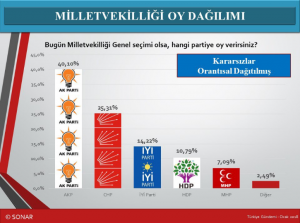
SONAR’s most recent poll for 2019 parliamentary election
Another influential political figure is Mrs. Meral Akşener, since she represents the untried alternative in Turkish politics with her new center-right Good Party (İyi Parti). Mrs. Akşener comes from Turkish nationalist background and is a good Muslim Turkish woman. She can easily consolidate right-wing voters -except for hardliner Islamists who would not accept a female leader without headscarf- in case Mr. Erdoğan becomes weaker. However, Mr. Erdoğan still dominates right-wing politics in Turkey and he tries to destroy by all means other right-wing political alternatives. Mr. Erdoğan already transferred many potential right-wing opposition leaders to his party including Erkan Mumcu, Numan Kurtulmuş, Süleyman Soylu and Tuğrul Türkeş. So, unless Mr. Erdoğan begins to stegger, Mrs. Akşener also does not have too much chance against him. She has 18 % support for herself and 14 % support for her party for the moment; it seems like she will take the third place (after Erdoğan and RPP candidate) if she becomes a Presidential candidate in 2019.
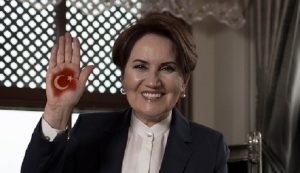
Meral Akşener
Pro-Kurdish PDP (Peoples’ Democratic Party) is now in a difficult position with its leader Selahattin Demirtaş imprisoned, but the party still has 9-11 % support and is very strong in densely Kurdish populated south-eastern Anatolia. It seems like PDP will continue to be an influential political institution in Turkey; not by its own candidate maybe, but with its support given to left or right. PDP leadership and Kurdish voters will probably make a choice between Mr. Erdoğan and RPP candidate in the second round. Although PDP is a left-wing party, due to Kurds’ historical opposition to Kemalism, until today, Kurdish people preferred to vote for Islamists instead of secular left-wing RPP and always supported Mr. Erdoğan. However, since now Erdoğan aligns himself with NAP and Turkish nationalists, Kurdish voters and PDP leadership might prefer to support RPP candidate as the “least evil” alternative in the second round.
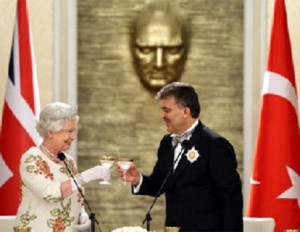
Abdullah Gül
A widely spoken but still seems difficult scenario is the candidacy of Mr. Abdullah Gül, previous President of the Republic. Coming from an Islamist background, Mr. Gül proved himself as a true democrat and differentiated his political stance from Erdoğan more visibly in recent years. Mr. Gül might become the joint candidate of the all opposition bloc and could have a chance against his long-time friend and political ally Mr. Erdoğan. He is still a well-known, respected and popular figure in Turkey, but he always hesitates to act against his own party. Moreover, he should take the support of RPP, Good Party and PDP to defeat Erdoğan. This does not seem easy; because all of these parties have their own strategies and candidates. An independent candidacy formula like that of French President Emmanuel Macron could be tried; but it is still very risky. So, Mr. Gül’s candidacy still seems improbable, although, on the paper, he is by far the best candidate. On the other hand, two Islamists racing for Turkish Presidency might not carry the ideal message that Turkey wants to give to the rest of the world.
Finally, it seems like Mr. Erdoğan still has higher chance to win the Presidential election in 2019, although his party could lose seats in the parliament election due to political and economic problems in Turkey, as well as seats allocated to NAP in accordance with an electoral coalition between JDP and NAP. İlhan Kesici and Abdullah Gül on the other hand, seem to be two best alternatives to Erdoğan for the moment. Here, it must be also added that, Mr. Erdoğan, for cultural and political reasons (the rise of Islamism and Erdoğan becoming the champion of lifting political bans against Islamism in the recent past), dominates Turkish politics in recent years and it is very difficult to challenge him both because of these political and cultural advantages, and also due to Turkey’s authoritarian and statist political system that does not give too much chance to opposition parties.
Dr. Ozan ÖRMECİ
[1] http://www.dw.com/tr/bahçeli-2019da-erdoğanı-destekleyeceğiz/a-42061703.
[2] http://t24.com.tr/haber/sonarin-anketine-gore-mhp-baraj-altinda-akp-oylari-dusuyor-erdoganin-ikinci-turda-secilmesi-zor,535401.
[3] https://www.youtube.com/watch?v=Lbm8CrR6ocs.
[4] https://www.sabah.com.tr/secim/2014-cumhurbaskanligi-secimleri/.
[5] http://www.internethaber.com/sonardan-2019-secim-anketi-sonuclari-yok-artik-dedirtti-foto-galerisi-1797773.htm.


